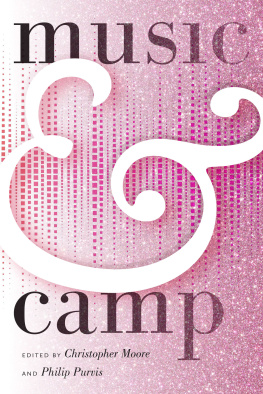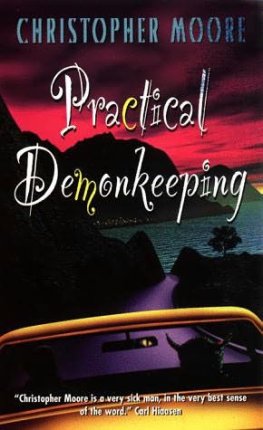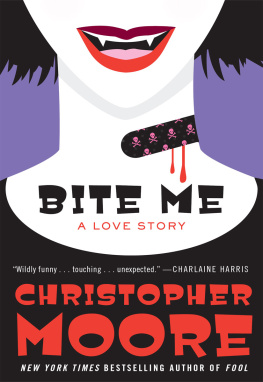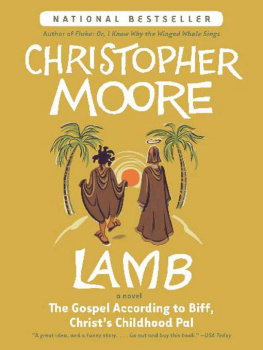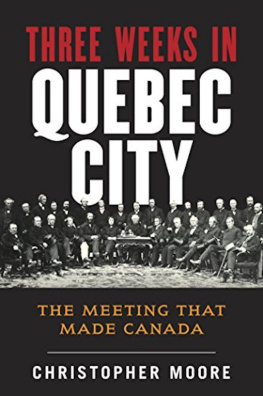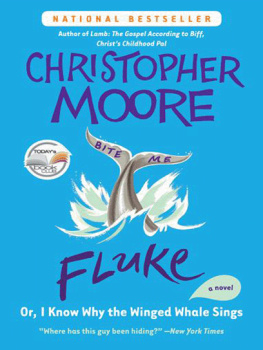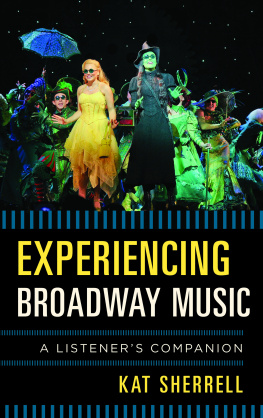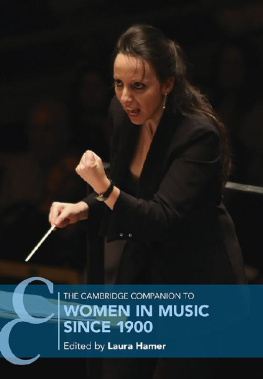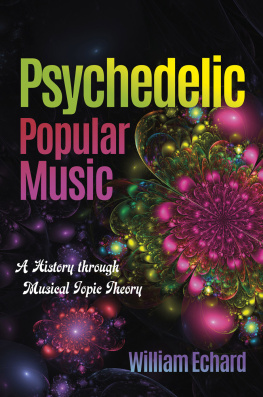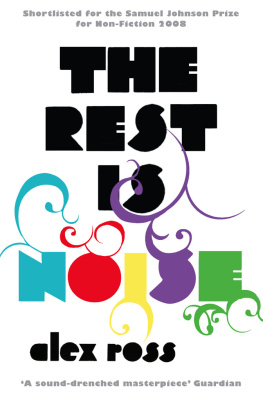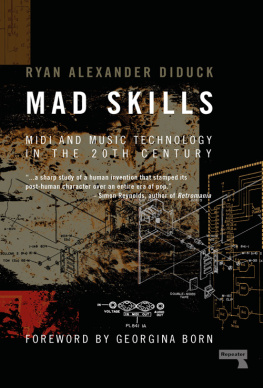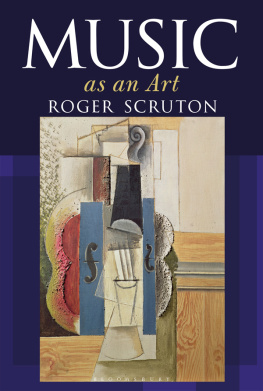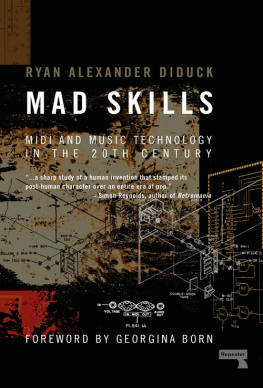
Music & Camp
Edited by Christopher Moore and Philip Purvis
MUSIC & CAMP
Wesleyan University PressMiddletown, Connecticut
Wesleyan University Press
Middletown CT 06459
www.wesleyan.edu/wespress
2018 Wesleyan University Press
All rights reserved
Manufactured in the United States of America
Designed by Mindy Basinger Hill
Typeset in Minion Pro
Library of Congress Cataloging-in-Publication
Data available on request
Paperback ISBN: 978-0-8195-7782-5
Cloth ISBN: 978-0-8195-7781-8
Ebook ISBN: 978-0-8195-7783-2
5 4 3 2 1
Front cover illustrations: Glitter surachetkhamsuk/123RF. Digital equalizer nastyaaroma/123RF.
CONTENTS
ACKNOWLEDGMENTS
The editors wish to thank all of the contributors to this collection for their patience, rigorous approach, and continual enthusiasm throughout its gestation. We would also like to extend our appreciation to the anonymous reviewers who ensured that this book was as good as it could be in its nascent stages. Parker Smathers and Marla Zubel of Wesleyan University Press and Amanda Dupuis of University Press of New England deserve our sincere appreciation also, for fielding our many questions and showing such care as the collection came together. Philip would like to take this opportunity to express a heartfelt thank-you to Christopher for reacting so positively to the initial idea for this volume; Christopher would like to thank Philip in turn for his friendly invitation to collaborate and for making this camp ride such an enjoyable one.
Christopher Moore
OTTAWA, CANADA
Philip Purvis
OXFORD, UK
According to Philip Core, if any place can be camp, Oxford must be a frontrunner thanks to the seriousness with which it takes its doctrine of flippancy. See Camp: The Lie That Tells the Truth (London: Plexus, 1984), 145.
CHRISTOPHER MOORE AND PHILIP PURVIS
Introduction
Ever since the word camp sashayed into the lexicon of aesthetic parlance in the early 1960s, music has tended to linger in the wings of discussions about this notoriously hard-to-define and ever-evolving concept. Early advocates of the term, Christopher Isherwood and Susan Sontag both included references to music in their pioneering descriptions of camp without, however, proposing any kind of rationale for what was so camp about it. Isherwood, in a charming fictitious dialogue, has his protagonist pronounce somewhat extravagant generalizations (Mozarts definitely camp. Beethoven, on the other hand, isnt.; High camp is the whole emotional basis of the ballet.) that Sontag would later imitate in her famousbut contestedtaxonomy of camps aesthetic attributes (Cuban pop singer La Lupe, European y-y, the operas of Richard Strauss and Vincenzo Bellini, classical ballets such as Swan Lake, Tin Pan Alley, Pergolesi, much of Mozart, as well as the musicals 42nd Street and Gold Diggers of 1933 all inhabit her particular camp universe).
Of course, camp would be somewhat easier to define and use if it were but an aesthetic. Yet both Isherwood and Sontag complicated that picture by rightly
One important result of the conceptual rifts in the history of writing about camp is that a broad consensus about its cultural definition still remains elusive. Aware of these historical and discursive differences, we contend that camp is best identified, analyzed, and understood when placed in relationship to specific musical practices, historical contexts, and performance traditions. Avoiding any monolithic (and thus profoundly unwieldy) definition of camp, this collection of essays takes for granted the contested nature of the term, the unpredictability of camps reception and its political appropriations, as well as camps at times uneasy aesthetic relationship with associated concepts such as queer, kitsch, the closet, and so on. We recognize that camp may vary depending on the communities that use it and speak about it; it is a dynamic concept, the discursive and performative nature of which is equally subject to the particularities of time, place, culture, genre, and so forth, from which it emerged as well as from which it is observed. For this reason, we have avoided giving the reader a detailed overview of the theoretical literature on camp. In any case, an excellent account is provided in Fabio Cletos Camp: Queer Aesthetics and the Performing Subject.collection provides, instead, is a series of case studies that each make use of the theoretical landscape in their own way to celebrate how camp, in its multivalent forms, can provide a useful springboard for discussion of a variety of different types of music and musical traditions.
Scholarship on the relationship between music and camp has reflected these developments and has juggled the entwined pull of its aesthetic allure and political agendas. While not always consistently or thoroughly thematicized, references to camps relationship to music figured in texts that became landmarks in the writing on gender and sexuality which became associated with the emergence of the new musicology during the 1990s.
Located at the intersections of traditional musicology, queer theory, popular music studies, theater studies, film studies, and anthropology, this volume provides unprecedented insight into camps presence, techniques, discourses, and potential meanings across a broad spectrum of musical genres, including those associated with high-art traditions (opera, instrumental music), the Broadway musical (both on-screen and off), rock, pop, as well as other popular musical manifestations such as the sing-along and the Christmas carol.
his essay segues into a meditation on the tropes of the maternal and the diva, and provides an assessment of Lillies camp that extends beyond a description of her trademark use of parody and double-entendre to engage with questions of child psychology and cultural communities. Lloyd Whitesell, in a similarly probing manner, addresses what he views as the oversubscription of camp intentions in relationship to the musical. Developing outward from a critical reading of Cohan, he considers examples of stylistic excess and their relationship to irony in excerpts drawn from Hollywood musicals, ultimately arguing for the importance of creative postures other than campespecially aestheticismas alternative tropes for probing queer intentionality in the genre. Continuing the focus on spectacular numbers, this time from the pen of the arranger Conrad Salinger (19011962), a member of Arthur Freeds famed Freed Fairies production unit at MGM, Stephen Pysnik investigates camp traces in the music for The Pirate (1948). By assessing Salingers use of excess and incongruity, Pysnik suggests that Salingers flamboyant arrangements significantly contribute to the musicals arch-camp appeal. In a move to the sacred, but without abandoning the saccharine, Ivan Raykoff examines how familiar Christmas carols chart a fine line between the hallowed and the hackneyed. Examining performances of Adeste Fideles, Raykoff establishes the key role of sincerity as a characteristic of camp aesthetics. The final chapter of this section proposes that the rituals and roles of the Catholic Church, as a result of their socially accepted normality, provided particularly powerful refuge for homosexual men, whose attachment to Catholicism sometimes prompted the creation of works best viewed through the lens of clerical camp. Here, Christopher Moore draws upon such works as Francis Poulencs Dialogues des Carmlites (1957) and Leonard Bernsteins MASS (1972) to argue that the sensuous, hedonistic, and homosocial routines of the Church were particularly open to queer appropriation, while at the same time offering a normative social and cultural identity in which camp sensibilities could flourish.
Next page
